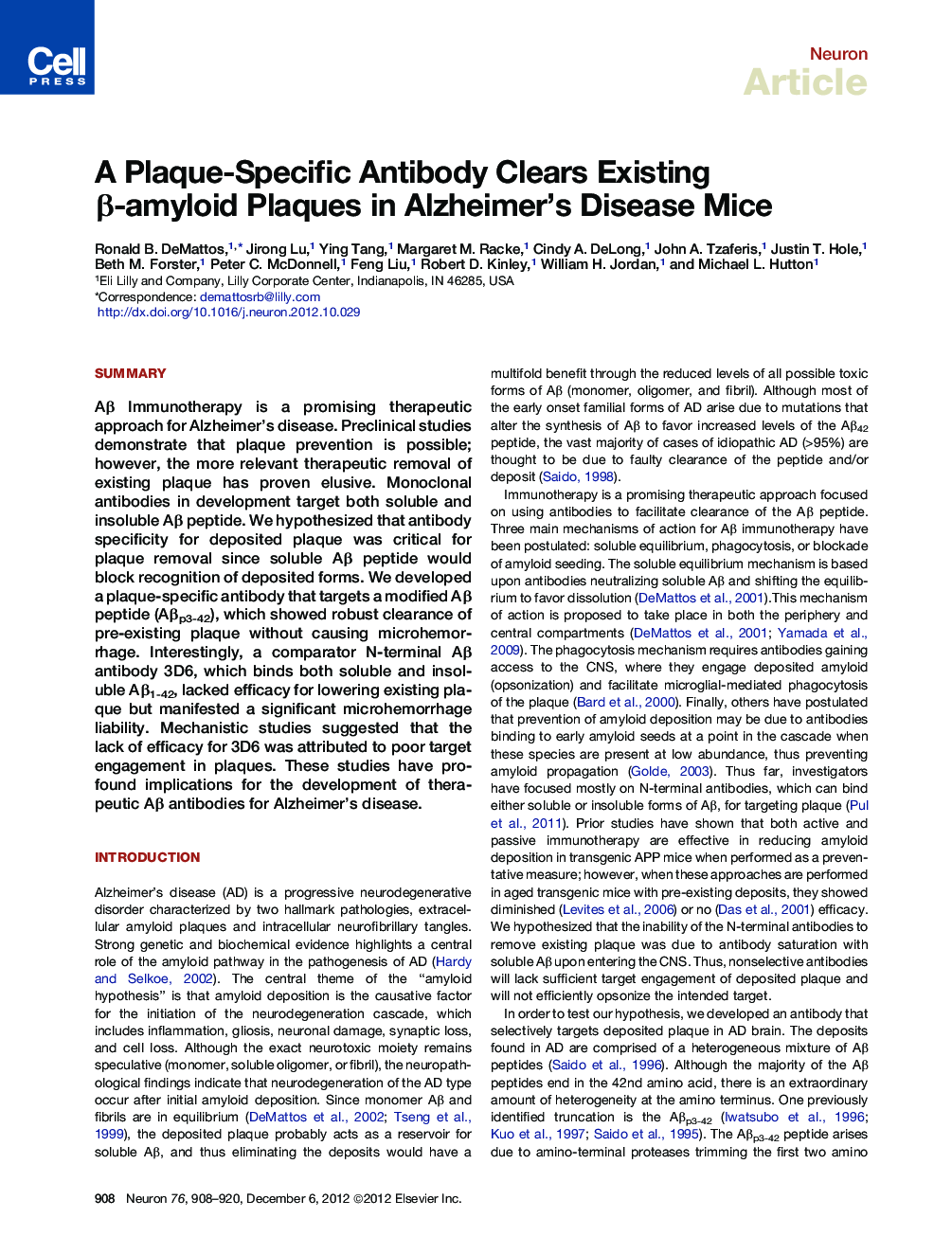| Article ID | Journal | Published Year | Pages | File Type |
|---|---|---|---|---|
| 4321590 | Neuron | 2012 | 13 Pages |
SummaryAβ Immunotherapy is a promising therapeutic approach for Alzheimer's disease. Preclinical studies demonstrate that plaque prevention is possible; however, the more relevant therapeutic removal of existing plaque has proven elusive. Monoclonal antibodies in development target both soluble and insoluble Aβ peptide. We hypothesized that antibody specificity for deposited plaque was critical for plaque removal since soluble Aβ peptide would block recognition of deposited forms. We developed a plaque-specific antibody that targets a modified Aβ peptide (Aβp3-42), which showed robust clearance of pre-existing plaque without causing microhemorrhage. Interestingly, a comparator N-terminal Aβ antibody 3D6, which binds both soluble and insoluble Aβ1-42, lacked efficacy for lowering existing plaque but manifested a significant microhemorrhage liability. Mechanistic studies suggested that the lack of efficacy for 3D6 was attributed to poor target engagement in plaques. These studies have profound implications for the development of therapeutic Aβ antibodies for Alzheimer's disease.
► Antibodies that bind soluble and insoluble Aβ lack therapeutic plaque lowering ► Plaque-specific anti-Aβp3-42 antibody removes pre-existing plaque ► Anti-Aβp3-42 antibody does not increase microhemorrhage ► Soluble Aβ binding will block target engagement in existing plaque
